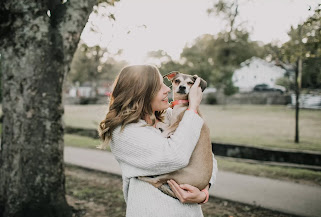Pet Vaccination Schedules Explained
Getting your furry friend fully protected through proper vaccinations might appear complex. Vaccine timing plays a vital role in keeping pets healthy while preventing common diseases. Many owners don't fully understand which shots their pets truly need according to their stage of life.
When you bring your puppy or kitten to visit a veterinarian, their first round of shots usually starts between six and eight weeks of age. These early visits allow vets to check their small bodies while establishing a solid foundation for future health.
Oxford Animal Care recommends these basic vaccination schedules:
- Puppies: Three rounds of core shots given every three or four weeks until sixteen weeks
- Kittens: A series of three visits where shots occur between eight and sixteen weeks
- Adult dogs: Yearly rabies shots, while other major vaccines might occur every three years
- Adult cats: Annual check-ups, where rabies and other virus shots follow local legal requirements
Young pets need extra visits since their small sizes react differently to early vaccinations. Their immune system needs these spaced shots before reaching total protection. Adult animals often enjoy fewer visits while still maintaining their health status through strategic timing.
Core vs. Optional Vaccinations
Your family pets should always receive their core vaccines, which target those deadly diseases every breed faces. These basic shots create strong walls against serious threats that could affect their daily lives.
The basic core vaccines include:
- Dogs: Rabies, distemper, parvovirus, adenovirus
- Cats: Rabies, panleukopenia, calicivirus, herpesvirus
Emergency Vet Care Oxford notes that other shots might apply based on your local risks and your pet's daily habits. These added shots might cover things like Lyme disease, kennel cough, or feline leukemia virus. Where your pets spend their usual time helps vets decide which extra protection suits their needs.
Special Considerations
Older pets might watch their schedule shift as their aging bodies change their health needs. Your senior dogs or cats could qualify for fewer shots while still receiving their legal rabies requirements. Their immune system often works differently after years of prior vaccinations.
Pets with known health issues force careful review of their vaccine plans. Their current medical issues might alter which shots prove safe during their annual visits. Oxford Veterinary Hospital works closely with owners whose pets have chronic conditions requiring these special adjustments.
Indoor-only cats often follow custom plans since their daily risks differ from outdoor roaming pets. Their lower chance of animal contact might allow fewer shots while still keeping their health needs fully covered. Every house setup creates unique needs that your vet should review carefully.
Creating Your Vaccination Calendar
Taking these major points about your pets while consulting with Oxford MS Veterinary Clinic helps build their custom health timeline. Their breed, past shots, living space, and daily habits shape which exact plans serve them right. Using phone alerts helps avoid those missed visits that would leave their health protection lapsing.
Your active role in managing their health means asking those tough questions during visits while keeping their records where quick access proves simple. Their future health relies on these plans being followed closely while adjusting when their lives might change.
Final Words
Well-timed vaccines prove much easier than trying to treat those severe illnesses later. These small steps taken throughout their lives build strong health while avoiding those costly emergency visits. Better health begins through these simple, planned visits where shots keep those dangerous diseases firmly away.



Comments
Post a Comment